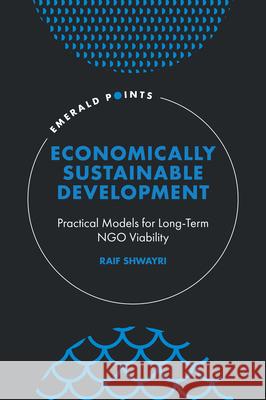Economically Sustainable Development: Practical Models for Long-Term NGO Viability » książka
Economically Sustainable Development: Practical Models for Long-Term NGO Viability
ISBN-13: 9781800437753 / Angielski / Twarda / 2021 / 96 str.
Development projects, nearly always all hope and optimism at their inception, have often failed to maintain their impetus and impact in the long run. This is usually because they have failed from the outset to account for how imbalances of power, legacies of colonialism and global wealth inequalities can hamper their staying power. These hurdles have only become greater in the wake of Covid-19. Drawing on over twenty-seven years of experience on both the front lines and the corporate and business sides of international development, Raif Shwayri offers practical models for navigating the major structural and strategic problems currently facing the workers and organizations who strive to make significant, long-lasting changes in developing countries. Shwayri’s new models emerge from his unique insights into the limitations of common approaches to structuring and monitoring initiatives, and they emphasize the crucial importance of vocational education, collaboration with business, and higher education and research for keeping an organization fresh and focussed. For its combination of industry-level analysis with insights gained from a wealth of personal professional experience, Economically Sustainable Development is a must-read not only for researchers in international development, but also for policymakers and practitioners struggling to come to terms with the state of an industry in a time of global economic crisis.











